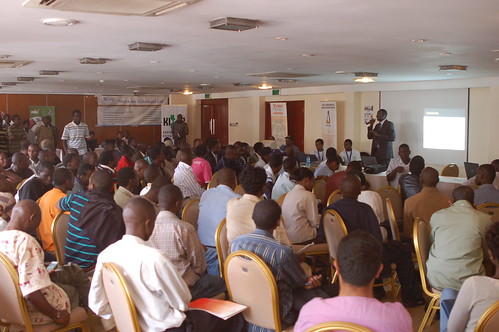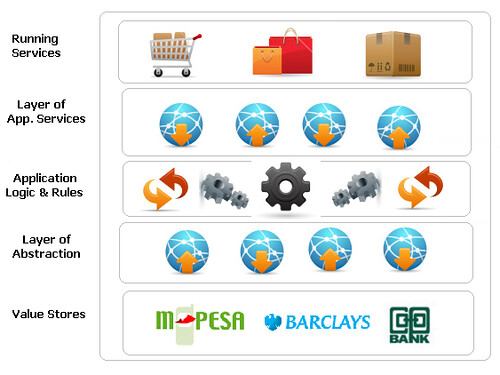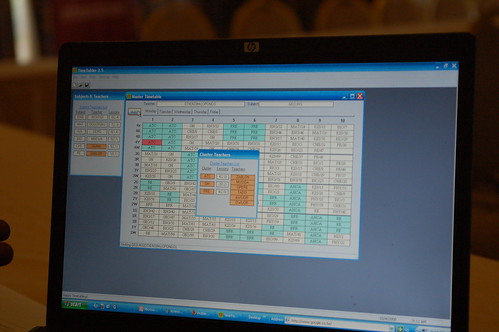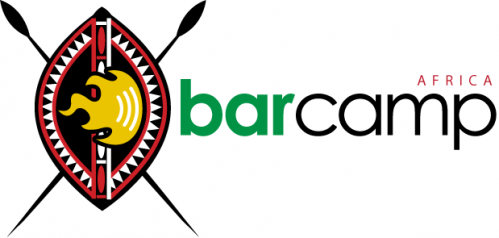I happened to be in Nairobi for the first Skunkworks organized conference on local-grown mobile, web and desktop software – setup by Alex Gakuru. It’s a mixture of demos, with a scattering of talks by high-level sponsors and the Permanent Secretary of Information Dr. Ndemo.
Tulipe – An African Payment System
Kenneth Mwangi just gave a presentation on his new web and mobile payment application called Tulipe, which means “let’s pay” in Swahili. It’s most similar to PayPal in how it is setup, where you signup to use it on the web, and then can start using mobile phones for payment after the account is set up.
Kenneth is in is final year at Strathmore University, well known for their tech programs, and this is his final project. The prototype is still being built, but it has a lot of potential. This is one of those ideas that a savvy business investor should jump on.
TimeTabler – School Scheduling Application
Bonn Ndegwa is part of a company called Unwired Technologies, based out of Western Kenya, that works on what we call “tropically tolerant software”. In other words, they create desktop applications that work in rural, unconnected Africa on old computers. It’s a perfect example of Africans developing software for their own needs, instead of just importing solutions created for a different world.
TimeTabler has a specific niche, they focus on serving the needs of schools putting together their schedules for both classes and teachers. It doesn’t sound that exciting, but it is if you’re a headmaster that used to spend a week trying to do what now takes only an hour with TimeTabler. It’s simple, working off of an Access database, but it works – and that’s all that matters.
Reasonably priced, they have 3 pricing levels, with a one-time cost of:
- Primary schools – 9,000 ($125)
- Secondary schools – 19,000/= ($250)
- Universities – 90,000/= ($1250)
Kikwe – Send Airtime Across Africa
 Sam Kitanye and Victor Murage are talking about the Kikwe application that allows you to send airtime anywhere in the world (not just Africa). They use electronic inventory, so they bypass the need of keeping physical voucher inventory, which is very useful when you think about times when the shops run out.
Sam Kitanye and Victor Murage are talking about the Kikwe application that allows you to send airtime anywhere in the world (not just Africa). They use electronic inventory, so they bypass the need of keeping physical voucher inventory, which is very useful when you think about times when the shops run out.
Scalable to any network, because you’re sending a pin number – if you tried to do this by keeping an account, SIM card or modem, that wouldn’t work. The airtime is sent instantly.
Fraud is always a problem with these kinds of international transactions – especially when you’re dealing with airtime in Africa as it has become its own pseudo-currency. Victor talks about the ways they are tracking fraudulent activity, but past experience in this space reminds me of how difficult it is, made even harder as their product is instant.
This is a good business idea for making money from the diaspora, assuming you can manage the fraud. However, the achilles heel for use within Africa is (again) the lack of local payment systems to actually create the transaction. Hopefully they’ll get together with Kenneth of Tulipe (above) and figure something out.
Jahazi – Local Kenyan Internet Content
Mugambi is giving a review of the newer version of Jahazi (which I reviewed in it’s earlier stages). One place where you can get all your local information for Kenya. Mixing things, including email, news reader, SMS and local internet content.
It’s another good example of home-grown software made for local markets, challenges and content.



